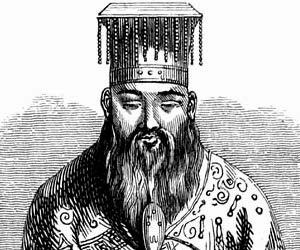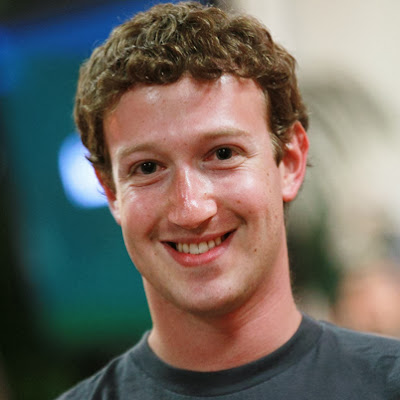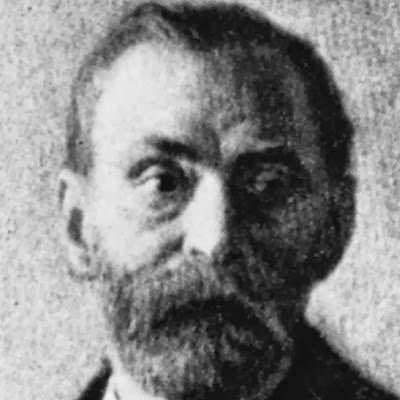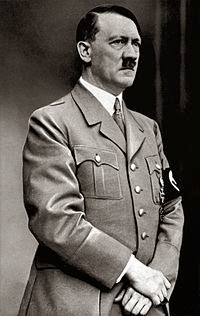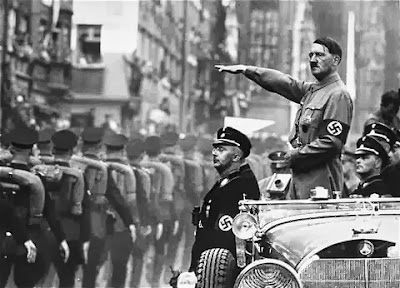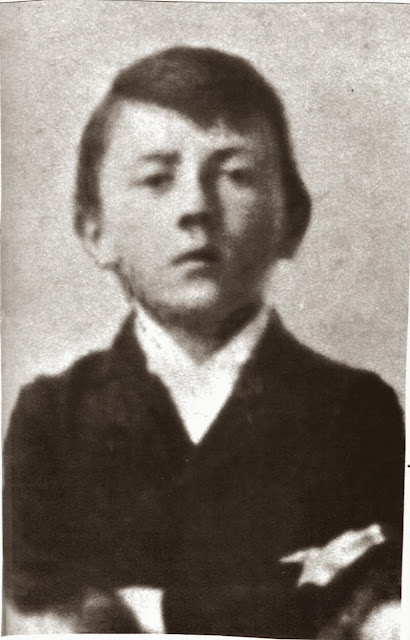John F. Kennedy was the thirty-fifth president of the United States. He
was the first president to reach for the moon, through the nation's
space programs. He also was the first president since Theodore Roosevelt
(1858–1919) with whom youth could identify. He made the nation see
itself with new eyes. His assassination shocked the world.
Early life and family
John Fitzgerald Kennedy was born in Brookline, Massachusetts, on May 29,
1917. He was the second son of nine children born to the
multimillionaire business executive and financier Joseph P. Kennedy
(1888–1969) and his wife, Rose Fitzgerald Kennedy
(1890–1995). Joseph's father had served in the
Massachusetts Legislature and in elective offices in Boston,
Massachusetts. Rose's father, John Francis Fitzgerald
(1863–1950), had been a state legislator, the mayor of Boston,
and a U.S. congressman. Joseph himself had served as chairman of the
Securities and Exchange Commission, chairman of the U.S. Maritime
Commission, and ambassador to Great Britain (1937–40). Thus, the
Kennedys were a wealthy family with a history of political and public
service.
Education and the military
Kennedy attended the Canterbury parochial school (1930–31) and
the Choate School (1931–35). One of his teachers later said that
people in school liked him more for his personality than for his
accomplishments. He was often ill during his childhood and spent much of
this time reading. Kennedy enrolled at Princeton University in 1935 but
illness soon forced him to withdraw. Upon recovery he went to Harvard
University, where he majored in government and international relations.
During his junior year at Harvard, he traveled in Europe and observed
the events that were leading to World War II (1939–45; a war in
which the Allies—France, Great Britain, the Soviet Union, China,
and from 1941 the United States—fought against the Axis
powers—Germany, Italy, and Japan). He used his observations for
his senior paper, which later became the bestselling book
Why England Slept
(1940).
After graduating from Harvard with honors in 1940, Kennedy went to
Stanford University for graduate studies. In April 1941 he
tried to enlist in the U.S. Army but was rejected for physical reasons
(a back injury received while playing football). Months later, after his
back strengthened through a regimen of exercises, the U.S. Navy accepted
him. He then became an intelligence officer in Washington, D.C. After
the Japanese attack on Pearl Harbor, a U.S. Navy base in Hawaii, on
December 7, 1941, the United States entered World War II. Kennedy
requested active duty at sea and was given this assignment in late 1942.
War hero
Following Kennedy's training with the Motor Torpedo Boat
Squadron, he was shipped to the South Pacific to fight in the war
against Japan. In March 1943 he was given command of a patrol torpedo
(PT) boat, a small, fast boat armed with weapons, including torpedoes.
In August his boat was sliced in two by a Japanese destroyer and two of
his crew were killed. Kennedy and four others clung to the half of the
PT boat that remained afloat. Six other men survived in the nearby
water, two wounded. In a three-hour struggle Kennedy got the wounded
crewmen to the floating wreck. When it capsized, he ordered his men to
swim to a small island about three miles away. He towed one man to shore
in a heroic five-hour struggle. Several days later, having displayed
great courage, leadership, and endurance, Kennedy succeeded in having
his men rescued.
House of Representatives
Returning to civilian life, Kennedy did newspaper work for several
months, covering a United Nations conference, the Potsdam Conference,
and the British elections of 1945. However, coming from a family devoted
to

John F. Kennedy.
Courtesy of the
Library of Congress
.
public service, Kennedy desired a career in politics. In 1946 he became
a candidate for the U.S. House of Representatives from the Massachusetts
eleventh congressional district. Kennedy built a large personal
organization for his campaign. On whirlwind tours he met as many voters
as possible. He talked to the people in a direct, informal style about
the topics that they were concerned with. In this campaign and in all
the others, his brothers, sisters, and mother supported him. His
brothers, Robert (1925–1968) and Edward (also called Ted;
1932–), acted as his managers, while his sisters and mother held
social events to raise money for his campaigns.
Kennedy won the primary, the fall election, and reelection to the House
in 1948 and again in 1950. He worked for better social welfare programs,
particularly in the area of low-cost public housing (or affordable
places for people to live). In 1949 he became a member of the Joint
Committee on Labor-Management Relations. In this capacity, Kennedy was a
strong supporter of labor, working for higher wages and better working
conditions.
Kennedy supported the domestic programs of President Harry Truman
(1884–1972), including social welfare programs, progressive
taxation, and regulation of business. However, he did not follow
Truman's policies in foreign relations. For example, he was
against the fighting in Korea "or any other place in Asia where
[the United States] cannot hold our defenses."
The Senate
In April 1952 Kennedy ran for a seat in the U.S. Senate against Henry
Cabot Lodge, Jr. (1902–1985), a Republican liberal. Kennedy won
by over seventy thousand votes. Lodge reeled under the impact. He had
not run against a man, but a whole family. The Kennedy women alone had
acted as hostesses to at least seventy thousand Massachusetts
housewives. In 1958 Kennedy was reelected to the Senate.
Kennedy's political success was soon followed by high points in
his personal life. On September 12, 1953, Kennedy married Jacqueline Lee
Bouvier (1929–1994), daughter of a New York City financier, at
Newport, Rhode Island. Arthur M. Schlesinger, Jr. (1917–) noted
that "under a veil of lovely inconsequence" Mrs. Kennedy
possessed "an all-seeing eye and ruthless judgement." John
and Jacqueline Kennedy had three children: Caroline Bouvier
(1957–), John Fitzgerald (1960–1999), Patrick Bouvier (who
lived only a few days after his birth in 1963); another child was
stillborn in 1956.
Taking his Senate seat in January 1953, Kennedy continued to support key
labor, economic, and foreign relations issues. He served on the Labor
and Public Welfare Committee, the Government Operations Committee, the
Select Committee on Labor-Management Relations, the Foreign Relations
Committee, and the Joint Economic Committee. He also worked to pass
several bills to aid the Massachusetts fishing and textile industries
and to improve New England's economy.
A recurrence of his old back injuries forced Kennedy to use crutches
during 1954. An operation in October 1954 was followed by another in
February 1955. He spent his months of illness and recovery writing
biographies of Americans who had shown moral courage at difficult points
in their lives. These biographies became the best-selling book
Profiles in Courage
(1956), which won the Pulitzer Prize for biography in 1957.
Kennedy's back operations were not completely successful, and he
was never again entirely free from pain. After recovering from his
operations, he returned to his Senate seat in May 1955. He became a
strong supporter of civil rights and social welfare legislation. The
Kennedy-Douglas-Ives Bill (1957) required an accounting of all employee
pension and welfare funds. Kennedy also sponsored bills for providing
federal financial aid to education and for relaxing U.S. immigration
laws.
Kennedy becomes president
Kennedy's record in elected office and the books and articles
that he had written attracted national attention. After he lost the vice
presidential nomination at the Democratic National Convention in Chicago
in 1956, he decided to run for president. Formally announcing his
candidacy in January 1960, Kennedy made whirlwind tours and won the
Democratic primaries in New Hampshire, Wisconsin, Indiana, Ohio, Oregon,
Maryland, Nebraska, and West Virginia. On July 13, 1960, Kennedy was
nominated for president, with Lyndon B. Johnson (1908–1973) as
his running mate.
"Jack in Walk" shouted the Boston Globe after
Kennedy's nomination. But it would be no easy walk to win the
White House against the Republican candidate, Vice President Richard
Nixon (1913–1994). At that time, Kennedy was a controversial
candidate because he was a Roman Catholic. Religious prejudice, or
dislike of a person based solely upon his or her religion, probably cost
him over a million votes in Illinois alone. Kennedy responded to the
issue of religion in his "Houston speech" on September 11,
1960. He believed in the absolute separation of church and state (the
belief that one body—church or government—would have no
influence over the other). To him, this meant that no priest could tell
a president what to do and no Protestant clergyman could tell his
parishioners how to vote. In other words, Kennedy's religion
would not affect the decisions he made as president.
A series of televised debates with Nixon was crucial to Kennedy's
campaign. Many viewers believed Kennedy defeated Nixon with his style.
Kennedy showed the American people that he had a sense of humor, a love
of language, and a sense of the past. On November 9, 1960, John F.
Kennedy became the youngest man and the first Roman Catholic in American
history to win the presidency. The 1960 presidential election was one of
the closest in the nation's history. Kennedy won the popular vote
by only 119,450 votes. On December 19, 1960, the electoral college cast
303 votes for Kennedy and 219 for Nixon.
At the inauguration on January 20, 1960, the first U.S. president born
in the twentieth century was sworn into office. Kennedy's
inaugural address included the challenge: "Ask not what your
country can do for you, ask what you can do for your country."
Bay of Pigs
In his short time in office, Kennedy faced many crises. The first of
which involved Cuba, a country about ninety miles south of Florida. On
April 17, 1961, fourteen hundred Cuban exiles, supported by the United
States, invaded Cuba at the Bay of Pigs. On April 18 the Soviet leader
Nikita Khrushchev (1894–1971) sent a note to Kennedy stating that
his government would help the Cuban government resist an attack. By
April 20 the invasion had failed. Although the plan for training Cuban
exiles had actually begun during the presidency of Dwight D. Eisenhower
(1890–1969), Kennedy took responsibility for it. He had first
supported the plan but later refused to commit the necessary American
troops. He was aware that if the Cuban people did not rise up and back
the invaders, the United States could not force them to accept a new
system of government. Although the Bay of Pigs invasion was a failure,
it did prove Kennedy's ability to face a disaster.
Protecting civil rights
Kennedy continued to show skill and passion for issues at home,
particularly civil rights. In 1961 the Congress of Racial Equality, a
civil rights group, organized people to protest segregation, or the
practice of separating people based solely on their race, on buses and
trains. When the showdown came, "the Kennedys," as the
president and his brother Robert, the attorney general, were known, sent
six hundred Federal marshals to Alabama to protect these "Freedom
Riders." In 1962 they sent hundreds of Federal marshals to
protect the rights of the first African American student to attend the
University of Mississippi.
Cuban missile crisis
On October 22, 1962, Kennedy announced to the nation that the Soviet
Union had sent nuclear missiles to Cuba. In response the United States
had blocked all shipments of military equipment into Cuba. The United
States would not allow Cuba to become a Soviet missile base, and it
would regard any missile launched from Cuba "as an attack by the
Soviet Union on the United States, requiring a full [military]
response."
For a week the details of the situation had been "the best kept
secret in government history." Throughout the seven days, the
Kennedy administration had maintained an outward appearance of normal
social and political activity. Meanwhile, American military units
throughout the world were alerted.
Messages were sent back and forth between Kennedy, Khrushchev, and Pope
John XXIII (1881–1963), who was volunteering as a peacemaker.
During this time Soviet ships were moving toward the area of the
blockade in the Atlantic Ocean. They slowed, then stopped. On October
28, 1962, the Soviet Union said it would remove its missiles from Cuba.
One result of the crisis was the nuclear test ban treaty with the Soviet
Union, which Kennedy called "the first step down the path of
peace." The treaty was signed on July 25, 1963. A "hot
line" for emergency messages was also set up between Washington,
D.C., and Moscow, the capital of the Soviet Union.
Vietnam
Vietnam, a country in Southeast Asia, took up more of Kennedy's
time than any other problem. The Vietnam War (1955–1975) was a
civil war in which anti-Communist forces in South Vietnam, supported by
the United States, were fighting against a takeover by Communist forces
in North Vietnam. In 1954 President Eisenhower had offered military aid
to South Vietnam and funding, and advisors were sent to the country
throughout the 1950s. Although Kennedy believed that a
"full-scale war in Vietnam … was unthinkable," he
tripled American forces in the country. Senator William Fulbright
(1905–1995) suggested that Kennedy put troops in Vietnam to prove
to Khrushchev that "he couldn't be intimidated."
The President's last day
Kennedy was well aware of the dangers of the presidency. "Who can
tell who will be president a year from now?" he would ask. On the
day of his arrival in Dallas, Texas, he said that if anyone wanted to
kill a president he needed only a high building and a rifle with a
telescopic lens.
That day—November 22, 1963—the president was assassinated.
It is generally believed that Lee Harvey Oswald (1939–1963),
using a rifle equipped with a telescopic lens, was the person who fired
on the president's car. Others, however, believe more than one
person was responsible. All of the United States—indeed, the
world—was in mourning. In Indonesia, flags were lowered to
half-mast. In New Delhi, India, crowds wept in the streets.
